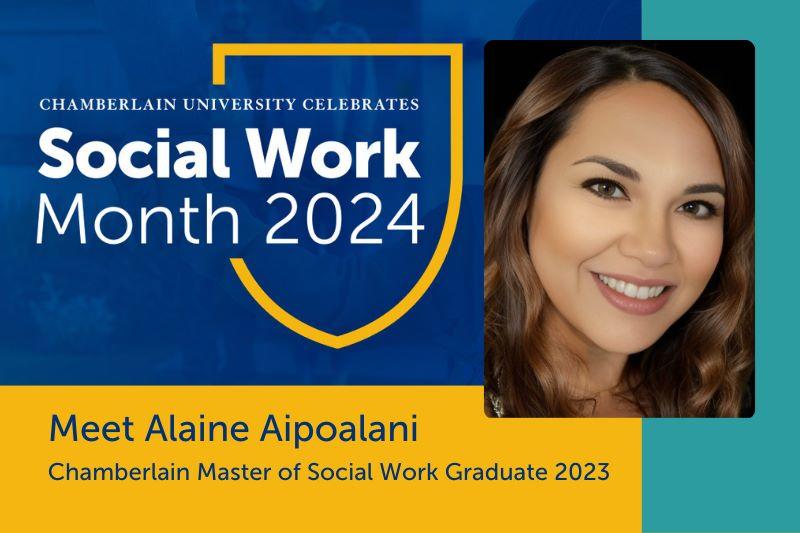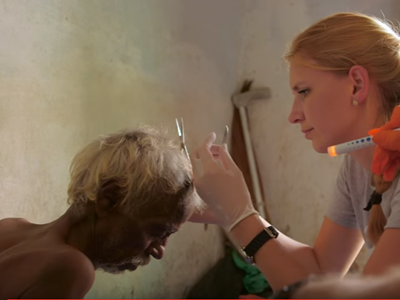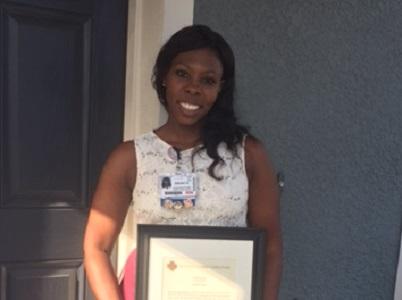Featured
Tags
Share
- Home / Blog / Faculty and Staff / Meet Sheri Sawchuk – Professor, International Nurse
Meet Sheri Sawchuk – Professor, International Nurse
Albania, Afghanistan and India are just a few of the many countries Sheri Sawchuk, MSN, RN, has visited to provide healthcare services and aid to underserved populations. Her travels continue today – she leads Bachelor of Science in Nursing degree students on several International Nursing Service Project (INSP) trips each year as assistant professor at Chamberlain College of Nursing. Sawchuk guides the students as they experience real-world healthcare application in impoverished communities, an experience they’ll carry with them past graduation.
Taking Her Passion Abroad
Sawchuk’s first international nursing experience was in 1996, when she traveled to Albania. “Albania was in the middle of an economic crisis when we arrived, and the need for medical help was colossal,” she explained. “I spent the first night holding the hand of a young Albanian woman who was in labor at a birthing house. There was no pain medicine or food for her or any of the patients.” Sawchuk describes the birthing house as “out of a horror movie.” She provided much-needed healthcare while dodging stray cats, dirty rags and other sanitation problems, including medical attendants who did not use gloves. As Sawchuk says, you have to do something with that type of experience. She vowed to educate others. Sawchuk teaches and demonstrates strong healthcare values to current and future nurses through hands-on learning. The international experiences instill the importance of providing assistance and education to foreign countries, and make students more aware of healthcare disparities around the world.
Experiencing Ebola
In July, Sawchuk traveled to Liberia to treat patients who had contracted the Ebola virus. Before she arrived, 759 people had been infected and 467 people had died from the disease, making it the worst recorded Ebola outbreak.[i] “I wasn’t scared, I was excited,” Sawchuk said. “I already had a base of knowledge of the Ebola virus, as it had been a health crisis in Africa for a while.” The care Sawchuk was able to provide was limited. “Because of the quarantine, all healthcare workers were required to wear a special suit, and only one healthcare worker was allowed in the quarantined area at a time.” Given the epidemic status of this virus, Sawchuk had limited opportunity to provide the necessary care, which was not nearly enough for the severely ill patients. She recalled, “What I witnessed was beyond what you could ever imagine.” Sawchuk contributed to the greatest extent she was able. She spent most of her time talking to patients behind the quarantined wall and itemizing medical supplies. Any aid was greatly beneficial to citizens of Liberia, whose health care system was already in crisis dealing with the widespread Malaria outbreak. [ii]
A Call for All Nurses to Experience Global Healthcare
A global nurse is culturally sensitive, collaborative and understands that in today’s global culture, what happens in one part of the world can quickly impact U.S healthcare.[iii] As the world becomes smaller through technology, travel and migration, nurses must develop a global perspective, including an awareness of different cultures and ability to assess unique care needs. “With the Ebola crisis, it was vital for the international community to step in because Western Africa did not have the medical resources or support that we have access to in the U.S.” said Sawchuk. “By taking action, offering help and providing care, many lives were saved.” Sawchuk believes students who experience healthcare delivery in less developed countries experience valuable cultural diversity first hand and gain compassion, allowing them to grow personally and professionally. “Whether through Chamberlain’s INSP program, mission work or volunteer organizations, student nurses should seek out opportunities for exposure to different cultures,” she advised. “Even in the U.S., our patient population is diverse. Experiences abroad prepare students to display cultural sensitivities to all patients, and give them the perspective to understand the interconnectedness of our global community.” [i] “The Toll of a tragedy.” The Economist, January 8, 2015. <http://www.economist.com/blogs/graphicdetail/2015/01/ebola-graphics>. [ii] “Charity scrambles as Liberia health care system collapses under Ebola.” Aljazeera America, October 31, 2014. <http://america.aljazeera.com/articles/2014/10/31/ebola-liberia-malaria.html>. [iii] “A Global Profession.” Johns Hopkins Nursing, August 10, 2010. <http://magazine.nursing.jhu.edu/2010/08/a-global-profession/>.
By Natalie Sobolewski
More from Faculty and Staff
Request More Information
To receive the Chamberlain University Program Guide, including associated career paths, please select a program of study.







